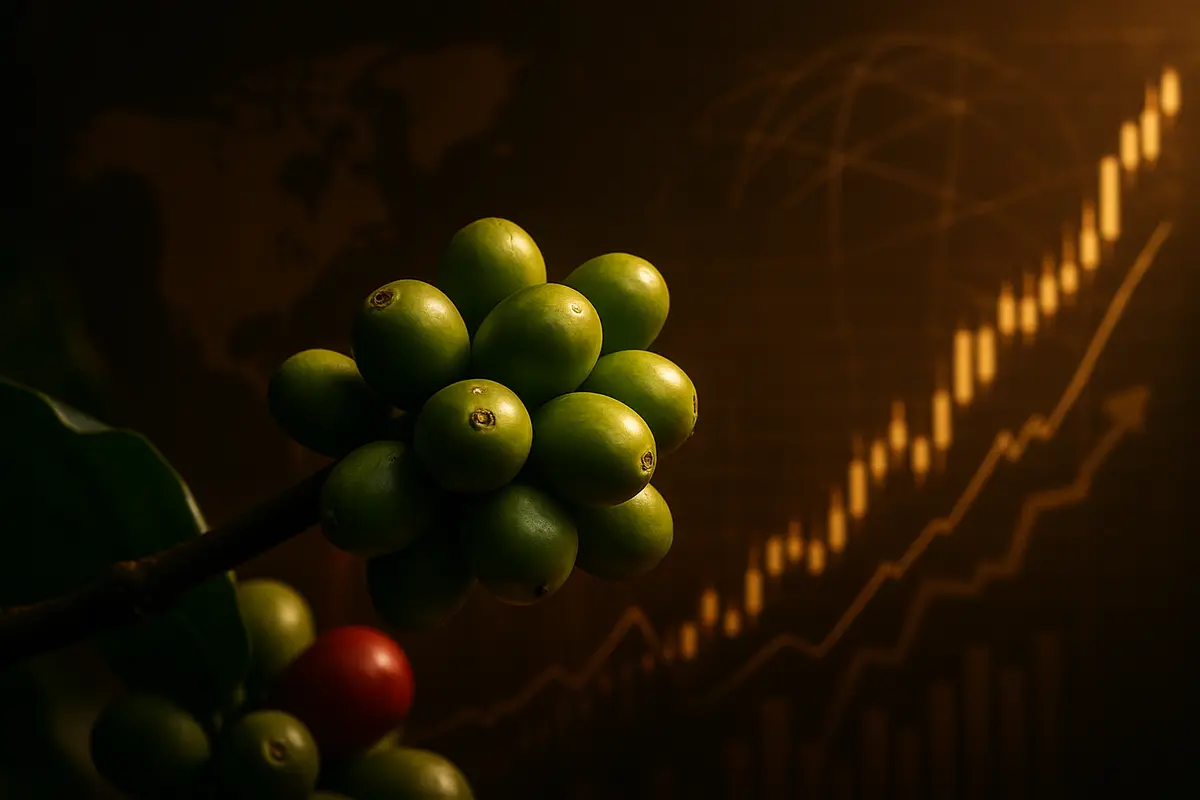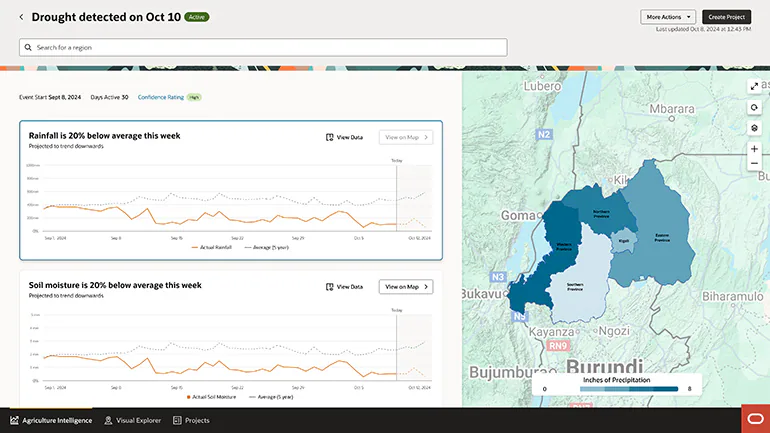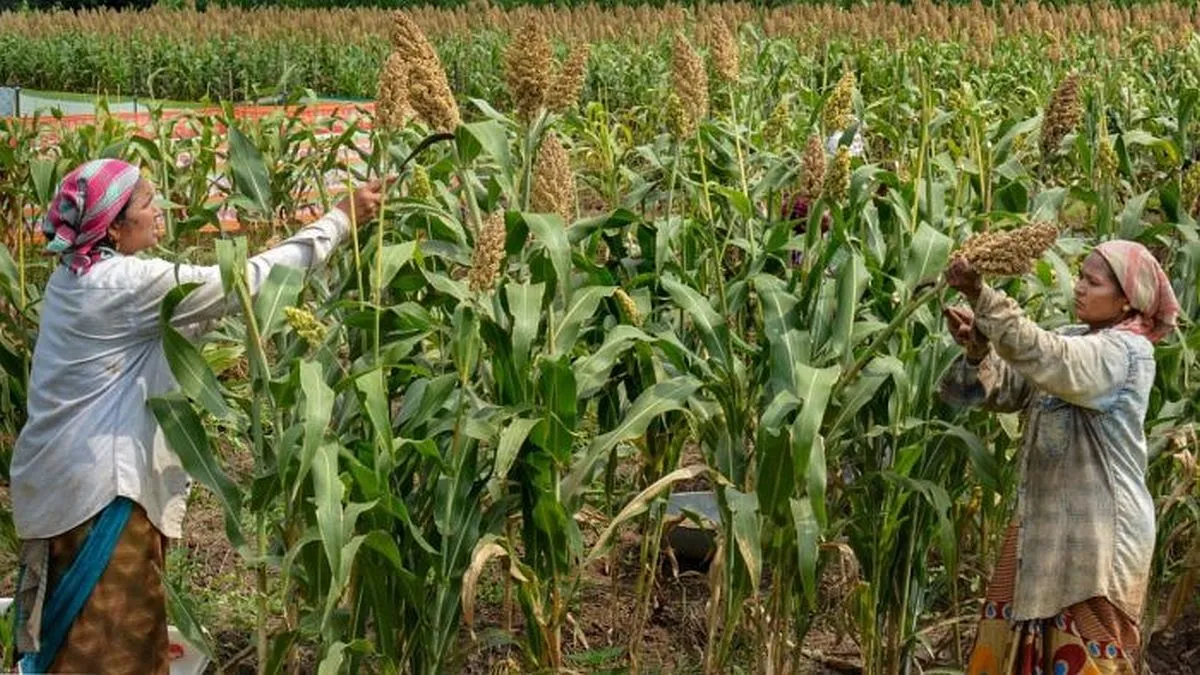Mexico is a leading global agricultural producer, ranking 11th worldwide. Its diverse geography and climates, ranging from fertile valleys to tropical lowlands and arid plateaus, enable the cultivation of various crops that supply domestic consumers and international markets.
Sector overview
Agriculture has shaped Mexico’s economy, food security and culture for millennia. Staple grains like maize remain central to daily life, while high-value exports such as avocados, berries and tomatoes drive foreign trade earnings.
Agriculture contributes 3.8% of gross domestic product (GDP), yet it punches above its weight in trade: Agri-food exports reached US $19.4 billion from January through October 2024. Mexico’s agricultural sector encompasses 49 million acres (20 million hectares), with 47 million acres (19.2 million hectares) harvested in 2024, generating a total production value of 855.8 billion pesos (US $45.36 billion).
Trade agreements — most notably the United States–Mexico–Canada Agreement (USMCA)—have strengthened market access, while new opportunities in Asia are emerging for tequila, coffee and specialty fruits.
The following analysis examines the five most significant crops by production value and volume, highlighting their market performance, pricing trends and economic contributions. Official data is drawn from Mexico’s Agricultural and Fisheries Information Service (SIAP) and the Ministry of Agriculture and Rural Development (SADER).


New York, NY – September 26, 2025 – The global coffee market is currently experiencing a significant shake-up as Arabica coffee prices have staged a remarkable rebound, reaching levels not seen in over a decade. This surge is primarily attributed to a dramatic and sustained decline in Intercontinental Exchange (ICE) certified stocks, signaling a tightening supply amidst resilient global demand. The development has sent ripples through the soft commodity markets, raising concerns among roasters, distributors, and consumers alike about future availability and pricing.
The recent price trajectory underscores a critical imbalance in the fundamental supply-demand dynamics of one of the world's most consumed commodities. With inventories at historical lows and adverse weather continuing to plague key producing regions, the market is bracing for a prolonged period of elevated prices, potentially reshaping consumer habits and strategic planning for major industry players.
The global food system is at a critical juncture, facing the dual pressures of feeding a growing population and mitigating the escalating impacts of climate change. Against this backdrop, "climate-smart food" initiatives are rapidly emerging as a transformative force, fundamentally reshaping the landscape of agricultural commodity markets. These initiatives, driven by an urgent need for sustainability and resilience, aim to achieve a "triple win": increased productivity, enhanced resilience to climate shocks, and significant reductions in greenhouse gas (GHG) emissions. As of late 2025, the widespread adoption of climate-smart agricultural (CSA) practices, from innovative soil management to drought-resistant crop varieties, is beginning to exert tangible influence on the supply, demand, and pricing of key agricultural commodities worldwide.
This paradigm shift carries immediate and profound implications for global food security and financial markets. While the transition to more sustainable practices may introduce initial investment costs and potential short-term price volatility in certain regions, the overarching goal is to foster a more stable and robust food supply. The increasing integration of sustainability goals into agricultural practices is not merely an environmental imperative but a significant economic driver, influencing everything from farming techniques to consumer purchasing habits and, ultimately, the bottom line for producers, processors, and investors in the agricultural sector.


According to the initial USDA Farm Service Agency crop acreage report, area planted to sunflower in 2025 increased 72% from 2024 and totals more than 1.24 million acres. The planted area of oil-type varieties, at almost 1.15 million acres, is up 93% from 2024.
Planted acreage of non-oil varieties, estimated at 95,645 acres, is down 24% from last year. 2025 U.S. sunflower production still is undetermined and will not be known until later this year. Most of the sunflower crop has been rated in the good to excellent categories throughout the growing season.
Above-normal yields, probably
This should mean that yields will be above trend, assuming normal weather through the rest of this fall. Initial estimates of total oil and non-oil sunflower production are in a range of 2.2 billion to 2.3 billion pounds, which is about 96% higher than last year’s crop. USDA will release its final acreage and production estimates in January.
Harvest of the U.S. sunflower crop had just gotten started as of this writing in mid-September. Initial yield reports are positive, and quality is generally very good. Depending on the size of the 2025 crop, seed prices could drift lower as harvest deliveries arrive at plants and farmers pick up the selling pace in the next couple of months.
AI application securely aggregates and analyzes vast amounts of data to continually provide greater insight into the critical drivers of food security
United Nations General Assembly, NY—Sep 25, 2025
Helping increase food system resiliency across the globe, Oracle today announced Oracle Government Data Intelligence for Agriculture. Available today, the AI solution provides comprehensive visibility into agricultural data and crop performance so world leaders and government agencies can better monitor production, forecast issues that could lead to food insecurity, and automate response plans to mitigate risk.
See the solution in action at: https://www.oracle.com/government/digital-government/#agriculture-food-security
“Food security is a global challenge that impacts all nations,” said Mike Sicilia, CEO, Oracle. “With current advances in cloud computing, AI, and satellite technology, we can completely transform agriculture operations to support more predictable outputs. Oracle Data Intelligence for Agriculture brings these elements together in one secure system to help nations get the visibility and predictive insights they need to proactively drive greater food system resiliency.”


New Delhi, Sep 25 (PTI) Global agricultural company Syngenta on Thursday announced AI-driven solutions to solve local agricultural challenges in the country.
The new innovations were launched at the flagship developer conference, DevCon 2025, held in Pune and simultaneously across global platforms.
According to the company, Syngenta's AI initiatives are focused on precision agriculture through satellite imagery analysis, predictive modelling for crop diseases and pest management, and intelligent irrigation systems that optimise water use.
"These innovations are being tailored to the Indian context, where agriculture faces diverse regional challenges," the statement said.
In India, Syngenta is deploying AI-powered advisory platforms in regional languages to make farming knowledge accessible to smallholder growers.
Localised solutions in pest identification, crop health prediction, and climate-smart advisories are being designed to deliver personalised recommendations.
AI-enabled supply chain tools are also helping reduce post-harvest losses and improve farmers' market access -- addressing one of the most pressing challenges of Indian agriculture.
Feroz Sheikh, Chief Information and Digital Officer, Syngenta, said, "We are taking global innovations and adapting them to solve local challenges faced by Indian farmers -- from climate resilience to post-harvest losses.
The U.S. Department of Agriculture addressed concerns in the Canadian canola market about the Chinese tariffs in its recent World Agricultural Supply and Demand Estimates report, but the overall global situation for oilseeds remained largely unchanged.
The positive news from the report was that the outlook for the global vegetable oil demand remains strong for the 2025-26 crop year.
Total vegetable oil demand is expected to increase by 6.9 million tonnes from last year to a record 316 million tonnes.
The USDA dropped global vegetable oil exports by 417,000 tonnes to 86.7 million tonnes.
The major vegetable oils showed a significant change in exports with palm oil dropping and soybean oil exports increasing from last month.
The current prices for soybean oil in the international market are driving demand, even though nearby futures remain close to the 53 cent per pound level.
The strong soybean oil demand will support canola and canola oil markets in the coming months. Canola futures have rallied off of the recent lows and should continue to move higher after harvest pressure wanes in the coming weeks.


The Organic Soy Lecithin market is estimated to be valued at USD 66.7 Mn in 2025 and is expected to reach USD 106.5 Mn by 2032, growing at a compound annual growth rate CAGR of 6.9% from 2025 to 2032.
➤ A recent study titled "Organic Soy Lecithin Market 2025," released by The Coherent Market Insights, presents insights into the anticipated growth of regional and global markets from 2025 to 2032. The comprehensive research on the global Organic Soy Lecithin Market covers key aspects such as market dynamics, value chain analysis, prominent investment areas, competitive scenarios, regional landscape, and major segments. It also provides a thorough analysis of the factors influencing the global market, including controls and restraints. The study offers valuable information on strategies and opportunities employed in the international industry, aiding industry professionals, policymakers, stakeholders, investors, and newcomers in seizing opportunities, identifying crucial tactics, and gaining a competitive advantage in the global Organic Soy Lecithin Market.